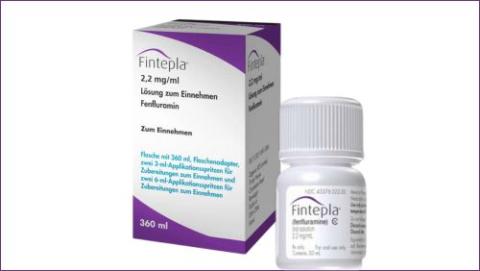
Epilepsy Ireland has made a submission to the National Centre for Pharmacoeconomics (NCPE) supporting the reimbursement of the anti-seizure medication Fenfluramine (Fintepla) in Ireland, for patients living with Dravet Syndrome (DS).
DS is a rare type of epilepsy which is characterised by often prolonged seizures. Due to the refractory nature of the condition, currently available treatments often do not work well, which has a huge impact on patients and the families that support them.
Fenfluramine (Fintepla) is a new medication which has strong clinical trial data supporting its efficacy in the treatment of DS. For that reason, it is vital that the new drug is reimbursed by the HSE. Reimbursement would mean that it will be available to patients under the medical card and long-term illness schemes.
As things stand, while the medication is licensed for use in Ireland, it is not reimbursed, and is therefore not an option for many families who are caring for loved ones with DS due to the significant and unsustainable costs associated with self-funding the medication.
In preparing our NCPE submission, we sought feedback from families caring for a loved one with DS. Their feedback was pivotal and provided context for the real-life challenges and experiences that caring for someone with such a challenging form of epilepsy can bring. We highlighted how uncontrolled seizures can have an impact on quality of life; reduce families to a sole income due to the significant care needs associated with DS; and how uncontrolled, prolonged seizures can prove to be a significant cost burden to the state due to the need for specialist treatment and the use of emergency services. We also highlighted that DS is associated with a higher risk of epilepsy mortality and Sudden Unexpected Death in Epilepsy.
Significantly, our submission also contained direct feedback from families who have accessed the medication through their own resources. While unsustainable for families in the long-term, it was encouraging to read of the positive experiences that families have witnessed with their loved ones who have been prescribed the medication, as the below testimony outlined:
“I have records of all her seizures she also had so many status seizures in 2020 (14 status in Jan -March 2020 alone). You can see from above the amazing seizures reduction we got, and July 2020 was her last hospital stay. She now has approx 2 TCs a week all <1minute and managed at home! This drug has changed our life’s, and I cannot emphasize that enough.... no hospital stays, ambulances, she had a full days and full years in school. My husband is considering going back to work after 4yrs as she is doing well and is stable, but this is a big leap for us. This drug should be available to all Dravet /LGS patients it is a game changer and has given us normality.”
We believe that these kinds of real-world experiences, coupled with existing scientific data presents a strong case for reimbursement.
In terms of the next steps in the reimbursement process, the NCPE have conducted their review of the application submitted by the medication’s manufacturer, UCB Pharma and have concluded:
“The NCPE recommends that Fenfluramine be considered for reimbursement if cost-effectiveness can be improved relative to existing treatments.”
This recommendation means that there is strong evidence for the medication’s use, but that negotiations with the manufacturer on pricing should continue. This is a common recommendation at this juncture. The NCPE’s recommendation, alongside our patient submission will now be sent to the HSE’s Corporate Pharmaceutical Unit and it will be considered by the HSE Drugs Group as part of the decision-making process.
It is crucial to ensure the patient voice is central to the process of reimbursing new drugs, alongside scientific and economic data, and we would like to thank everyone who contributed to our submission. Given the positive impact of the medication – as reported by families in our submission – we firmly believe that more patients living with Dravet Syndrome deserve an opportunity to access this vital new treatment. As one contributor pointed out:
“Families need access to this…this is not sustainable and causing huge stress, as you see it working and can't really afford it, it’s so unfair! It has changed our lives for the better.”
We look forward to providing further updates on this process in the near future and hope that the medication will indeed be reimbursed.
